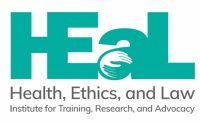Massive Open Online Courses (MOOCs) Program in Social Research Ethics | 2019 onwards | Swayam Initiative, University Grants Commission (UGC)
Organizers:
- Tata Institute of Social Sciences, Mumbai, MH, India; and
- Health, Ethics and Law (HEaL) Institute for Training, Research and Advocacy of Forum for Medical Ethics Society (FMES), Mumbai
Period: Annually runs between July and December
Venue: Digital platform, Swayam Initiative, University Grants Commission, New Delhi.
Course Level: Post Graduate Course Credits: 4 Course Type: Elective Weeks: 16
Course Directors and Core Faculty: Dr Sunita VS Bandewar, Director, HEaL Institute, FMES; and Prof Lakshmi Lingam, Dean, School of Media and Cultural Studies, TISS, Mumbai
Guest faculty and panelists:
- Dr Amar Jesani, MBBS, Independent Researchers and Consultant, Pubic Health and Bioethics, Mumbai; and Editor, Indian Journal of Medical Ethics (IJME), Mumbai, MH, India;
- Dr Amita Pitre, Consultant, Public Health and Gender Justice, Fulbright-Nehru Fellow (2016-17) | Feminism and Legal Theory Project | Vulnerability and the Human Condition Initiative Emory University School of Law | Atlanta GA, Research Scholar | Tata Institute of Social Sciences
- Dr Anant Bhan, Independent Global and Health and Bioethics professional; Visiting Faculty, Yenepoya University, Mangalore, KA, India
- Prof Dr Mala Ramnathan, Sree Chitra Tirunal Institute for Medical Sciences and Technology, Thiruvananthapuram, KE, India
- Prof Surinder Jaswal, Deputy Director, Dean School of Research Methodology, Centre for Health and Mental Health, School of Social Work – TISS Mumbai Campus, MH, India
- Sandhya Srinivasan, Freelance Journalist and Researcher, Consulting Editor of IJME, Mumbai, MH.
- Prof Dr Vijay Gopichandran, Assistant Professor, Community Medicine at ESIC Medical College and PGIMSR, Chennai, India
- Prof Vijay Raghavan, Centre for Criminology and Justice , School of Social Work – TISS Mumbai Campus, MH, India
About the course
Various fields of science adhere to the rigours of scientific method like reliability, validity and replicability governing research. Unlike research in pure sciences, which attempts to carry out research in a laboratory setting, in social sciences, research is based largely within the context of society, communities and everyday lives of people.
Crucial to social science practice is the relationship between the researcher and the researched. Since human beings are embedded within a system of social hierarchies, these too manifest within social science research. Central to research ethics is the recognition of asymmetrical/imbalanced relationship amongst the key players in research – researchers, research institutes, sponsors/funders, research participants and communities, for example.
Awareness of ethical considerations become very important, and must be navigated to ensure that research respects the dignity, privacy and rights of the individuals being researched.
Goal: To enable course participants to appreciate the salience of research ethics in upholding scientific integrity of research enterprise in general; and identify and apply the methods of ethical reasoning to social science research.
Learning methods: Adult learning pedagogy. It consists of short lectures (30%), screening of videos and short films and other internet resources (20%), short writing assignments using case studies aimed at reflective engagement with concepts and themes covered in lectures (20%), select essential readings (20%) and question-answer exercise (10%).
Learning outcomes: By end of the course, participants will be better equipped with:
- knowledge and skills –to understand ethical issues in relation to research involving human participants;
- b) knowledge and application of key national and international research ethics guidance;
- understanding of specific concepts in research ethics (privacy, confidentiality, standard of care, informed consent process, collaborative research, conflict of interest, data sharing, publication ethics, research integrity, Ethics Review Board and their functioning; and
- capacity of ethical reasoning to respond to various research ethics related challenges in social science research; and enhancing skills in operationalising the research ethics principles in practice.
Audience: The course will be of critical significance to mid-career faculty, doctoral and post graduate students, and other professionals engaged in social research from academic entities; and those from NGOs and government institutions and government departments engaged in social sciences research; program implementation and program evaluation from the.
Week wise thematic session
Week 1: Introductory Concepts & Principles
Week 2: Introduction to types & stages of Research
Week 3: Justice, Equity and Fairness governing Research
Week 4: History of Bio-ethics & controversies
Week 5: Theoretical Approaches to Bio-ethics
Week 6: Social Relevance and Scientific Validity
Week 7: Privacy and confidentiality
Week 8: Informed consent
Week 9: Risk benefit analysis
Week 10: Research Designs Participatory, Action, Experimental and Interventional
Week 11: Ethical challenges specific to research methods: qualitative and quantitative methods
Week 12: Translating Ethics guidelines in different research settings
Week 13: Research Ethics Governance
Week 14: Research misconduct & violation of integrity
Week 15: Publication Ethics
Week 16: Concluding session
